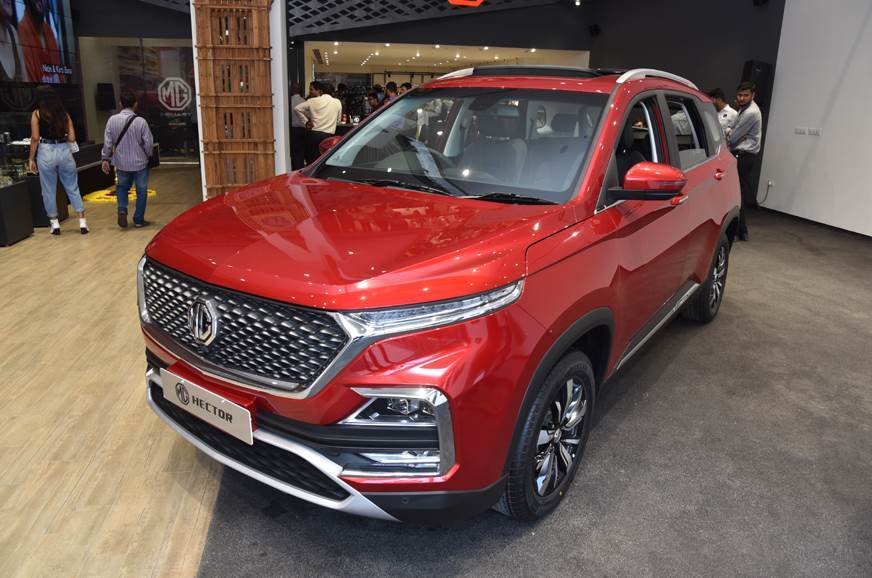Compared to its other illustrious countrymen, Maserati could be accused of keeping a low profile. That, however, could soon change. With a new rule that will do away with the homologation requirement and the current price and engine restrictions, Maserati says it could expand its portfolio with a petrol Levante and Ghibli too; diesel is the only choice of fuel for both at present. So, naturally, when Maserati invited us to Cannes in France to test drive a petrol Levante, we happily packed our bags.
Besides sampling the petrol engine, this was also a chance to the drive the new MY19 Levante. The changes are mostly cosmetic, but with one lip-smacking bit – the introduction of V8 power with the 590hp Trofeo and 550hp GTS versions. Sadly, though, the joy was short-lived as these weren’t approved for Europe, which meant I drove the next hottest model – the V6 S.
Fine Form
Available in two trim offerings, the GranSport and GranLusso, Maserati, for MY19, has further differentiated between the two. The Sport gets a more aggressive styling that’s shared with the new V8 versions, while the Lusso gets more chrome exterior bits at the front and rear, new alloys and a few cosmetic tweaks, like a rear spoiler in body colour. There are two new body colours for the Levante – Rosso Potente and Blu Nobile (the one I am driving). It’s a deep blue shade with embedded metal flakes that shimmer in the sunlight and it did look quite impressive and unique. The rest of the SUV remains the same curvy crossover-like-SUV that it is.
On the inside, the Levante gets new graphics for the 8.4-inch touchscreen infotainment system and a redesigned gear lever. While this may sound like a minor update, it’s actually a big improvement over the earlier gear lever which required you to shift it into ‘Park’ position; the rest of the shifts were not very intuitive either. The new unit has the ‘Park’ button located at the top of the lever, with shorter travel for shifts and a manual mode can be used by simply tipping the lever sideways into a separate lane; the earlier unit used a button to make this switch. Along with the lever, the driving mode button cluster has also been redesigned and now has two buttons – for Sport driving mode and Sport suspension setting.
Haute couture
Cabin materials have always been a strength, and the designer Ermenegildo Zegna Silk interiors
of the GranLusso are carried forward to the new car as well; these natural-fibre mulberry silk inserts are used on the seats, door panels, roof lining, sunshades and ceiling light fixture. Taking things further, Maserati has introduced new Pieno Fiore natural leather to the upholstery. In terms of space, as you would expect, it isn’t large, and is just comfortable enough; the materials create a sense of cozy luxuriousness.
Magic Carpet
SUV the Levante may be, but our driving in France was solely on tarmac over some lovely twisty mountains roads, city streets and the highway too. The 3.0-litre, twin-turbo V6 petrol motor puts out 430hp at 5,750rpm and a peak torque of 580Nm at 2,000-4,750rpm; and the route did allow us to stretch its legs. The engine pulls nicely to its 6,500rpm redline; while doing this, the Ferrari-developed and built motor sings a nice tune, accompanied by Maserati’s active sports exhaust system. Compared to the diesel, the petrol Levante feels expectedly quicker, with a claimed 0-100kph time of 5.2sec against the diesel’s 6.9sec.
On the whole, Maserati cars are more luxury tourers than outright sportscars and the Levante is no different. It cruises along effortlessly and in a relaxed manner. In normal mode, it’s easy to manage in the city and you have to depress the throttle pedal a fair bit to get a rapid change of pace; move it to ‘Sport’ though and power is pretty much always on tap.
The ride and handling balance is what you’d expect from a maker of sporty cars. It may not be a class leader, but in Sport mode, the air springs deliver a good balance without actually crashing too hard over ruts and broken surfaces. Through the twisty mountain roads on the outskirts of Cannes, the car was entertaining enough for both me and my car-sharing partner to want to drive it for longer. Normal mode delivers a higher ride height, thus more cushioning, which is easily noticeable. The steering feel is nicely weighted in this mode as well, although on the highway, the lane-keeping assist did deliver steering input in a rather intrusive manner at times. The trouble is that the lane-keeping aid (part of ADAS - Advanced Driver Assist System) wants to keep you centred, while at times you do want to position yourself off-centre within your lane, in relation to traffic on either side of you.
So should you buy one? If you’re looking for the sportiest SUV or the most space or perhaps even the best off-road ability, you won’t find it here. So what’s left then? Well, a fair bit actually. The car drives well and is decently equipped with even bits like soft closing doors, and what works in the Levante’s favour are things like the interiors, which feel all special and spiffy in their designers appointments, and the Ferrari-sourced V6 petrol motor that feels fine in its drivability and aural talents; let’s face it, aural talents are certainly high priority, should you be buying anything from Italy. And then there’s the brand itself – it’s suitably high-end and exotic, and being off the shortlist of most buyers, you get a fair amount of exclusivity. So then, you’d buy this not for rational reasoning but more for matters of the heart.
from Autocar India https://ift.tt/2TGoWxE
via IFTTT

No comments:
Post a Comment